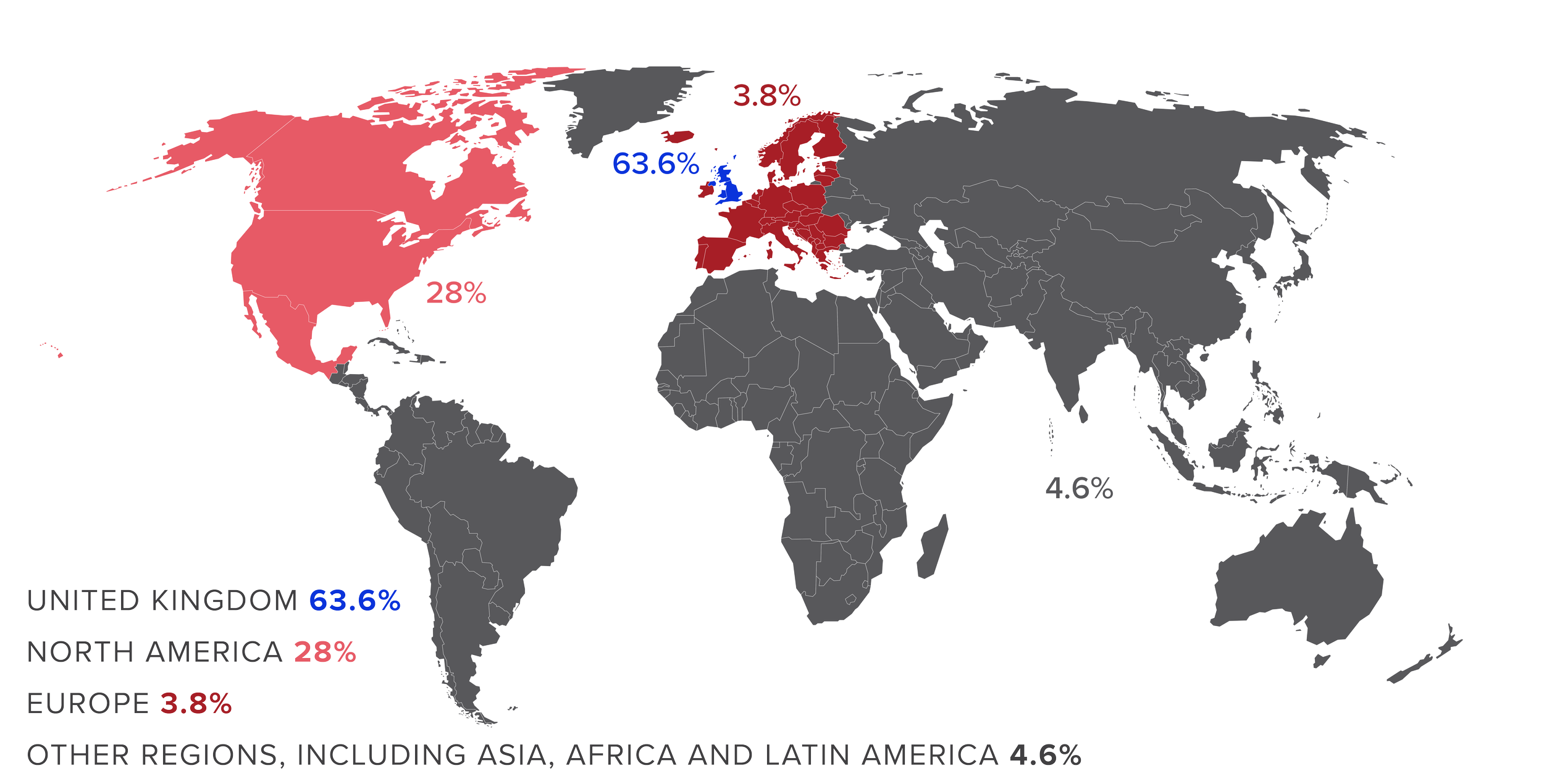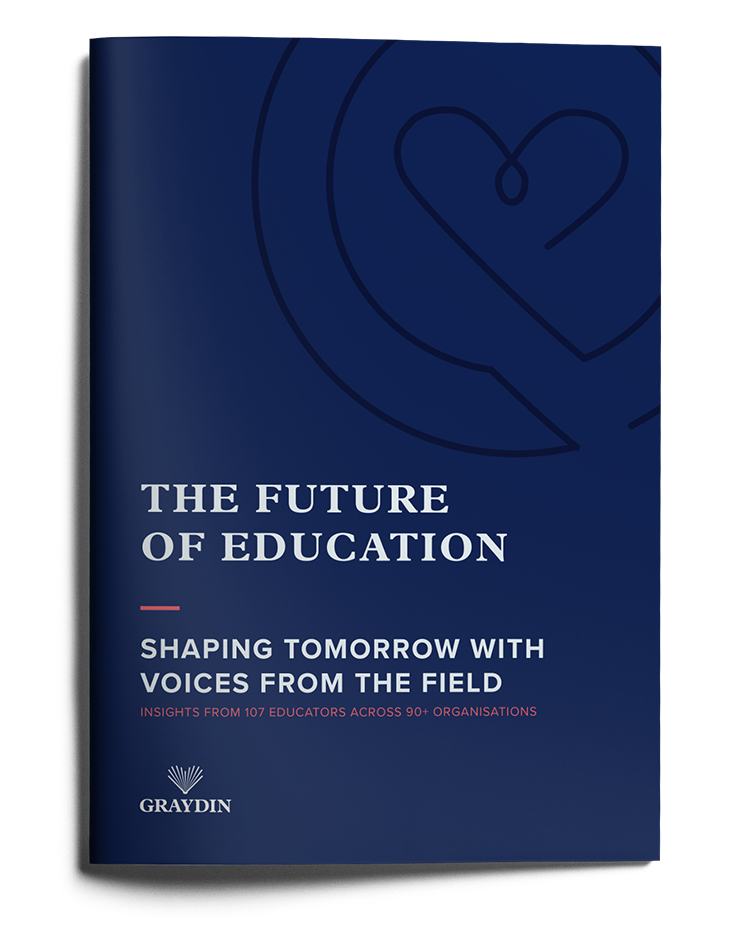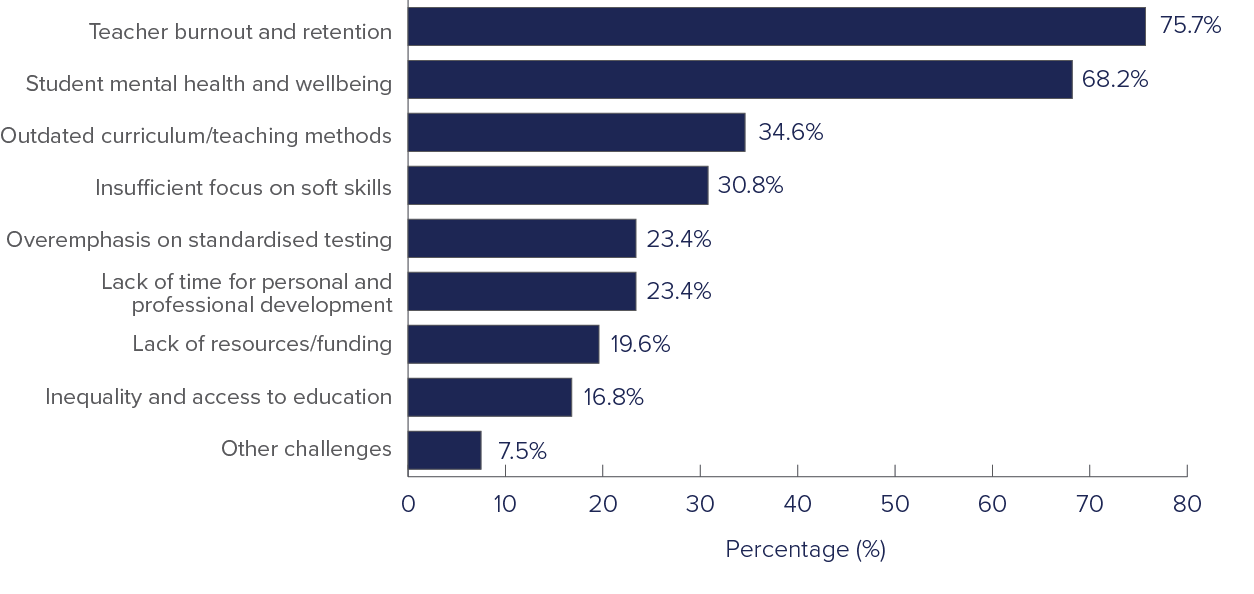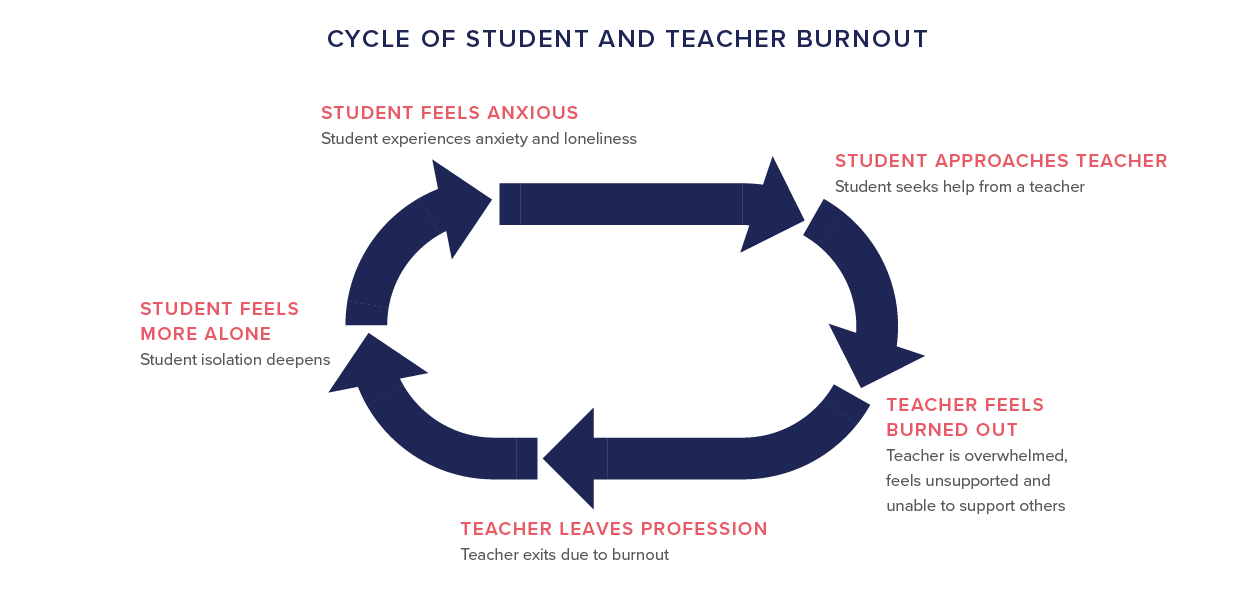
The Future of Education
Shaping Tomorrow with Voices from the Field
In January 2025, we asked a simple but powerful question:
What do schools truly need to thrive?
In response, 107 individuals from 87 schools and 20 other organisations participated in this survey. While the dataset isn’t statistically representative of all voices in education, it offers a meaningful snapshot of what’s on the minds of those leading change across the sector.
We learned that educators are calling for future-focused, human-centred change. This includes embedding wellbeing and Social and Emotional Learning (SEL), improving how we use technology and transforming approaches to professional development.
We compiled the Future of Education report with the data collected and our insights.
We hope this report becomes a springboard for thoughtful reflection, dialogue and community-led change.
If you’re a school leader, educator or coach, we invite you to consider how this report could support your efforts. You might decide to:
reflect on the questions we posed in this report.
share this report with your team.
use one data point to open a dialogue with students or colleagues.
And, if you’re curious about how to bring coaching into your school, we’re here.
An excerpt from the report
Dive in before you download
WE ASKED
In your eyes, what are the biggest challenges facing education today?
Respondents were given nine options and asked to select their top three challenges.
These findings point to a system that is emotionally depleted. When nearly 76% of educators name burnout as their top challenge and 68% say the same about student wellbeing, the message is clear: we’re running low on connection, not just time or resources.
At Graydin, we believe a coaching culture is one of the most powerful ways to place relationships back at the heart of education—re-energising teachers so they can be present and purposeful with the young people in their care.
Based on this data, we gather that this cycle is happening:
This isn’t just a staffing crisis—it’s a relationship crisis. We believe coaching can interrupt this cycle. When school leaders invest in the growth and wellbeing of their people, they create environments where belonging flourishes. Teachers feel supported, and, as a result, are better able to create the same conditions for their students.





